Published
- 04:00 am

Semafone®, the leading provider of data security and multi-channel compliance solutions for call and contact centres, has appointed Marc Cremer as Executive Vice President of Sales for North America. Cremer will be responsible for leading Semafone’s direct, partner, and channel sales teams as well as growing strategic relationships with high-value customers and partners. Additionally, he will lead the expansion of Semafone’s North American sales team, adding top talent in 2020 and beyond.
Cremer is a veteran leader in the telecommunications industry with more than 30 years of experience. He comes to Semafone from SeaChange International, where he served as the vice president of global professional services and customer program management and was responsible for leading technical sales of on-premises, cloud, and hybrid deployments of advanced video solutions, in addition to managing strategic relationships with marquee customers. Cremer previously held senior leadership roles at companies delivering unique solutions for mobile telecoms and unified communications including Airvana, Taqua/Tatara Systems, Yamaha/Revolabs, Motorola, and PCTEL. He brings deep technical knowledge and a wealth of expertise in executing highly successful regional and global sales strategies. He holds a Bachelor of Science in electrical engineering from Northeastern University.
“As the cost and frequency of data breaches continue to rise, we’ve seen a big demand from North American enterprises and SMBs for Semafone’s unrivalled contact centre data security and multi-channel compliance solutions,” said Gary E. Barnett, CEO, Semafone. “Marc is well equipped to answer that demand and lead our rapidly growing sales team to solidify Semafone as the market leader. We’re very excited for Marc to join our team and help us achieve our true growth potential within North America.”
Enterprises and SMBs across all vertical industries are drawn to Semafone’s Cardprotect Voice+® and Cardprotect Relay+® solutions for their ability to enable frictionless and secure omnichannel payments while dramatically simplifying compliance with the Payment Card Industry Data Security Standard (PCI DSS) and other regulations. By deploying Semafone’s products, organizations can create a unified omnichannel customer experience while securely accepting payments in any channel, including phone, email, website, social media, webchat, SMS, QR codes, and more. Semafone’s cloud-based, omnichannel payment solutions make it easy for businesses to provide a frictionless customer experience while ensuring strong security and compliance.
“Semafone’s continued commitment to innovation, unrivaled technology, and operational infrastructure for supporting customers and partners truly differentiates the company from its competitors and make it well-positioned to expand even further throughout North America,” said Cremer. “I’m eager to bolster Semafone’s team and bring value to customers by helping them seamlessly solve difficult security and compliance challenges in their contact centres.”
Related News
- 08.10.2019 -- 07:19 pm
Bahruz Naghiyev, Member of the Executive Board, Pasha Bank at Sibos 2019
Other Videos
- 07:00 am

Pico, a leading provider of technology services for the financial markets community globally, is pleased to announce the launch of an optical dark-fiber network with capacity of up to ten terabits per second (Tbps), initially connecting Wall Street liquidity centers Equinix NY4 (Secaucus), Nasdaq (Carteret), Intercontinental Exchange NYSE (Mahwah), and Cyxtera NJ2 (Weehawken).
The transition to dark-fiber is the latest investment Pico has made in PicoNetTM, a private and proprietary global financial markets network that allows clients to excel in today’s competitive markets by providing low-latency, resilient connectivity to hundreds of liquidity sources, information providers and counterparties around the world.
Pico’s terabit per second optical backbone significantly enhances the profile of PicoNet, leveraging the combined power of the fastest dark-fiber routes available and the lowest-latency active optical equipment in the industry. PicoNet uses full ROADM functionality to route traffic optically between sites, instead of traversing multiple switches, reducing latency and operational complexity. In conjunction with its full suite of offerings, the core backbone capacity allows Pico to provision dedicated 100Gbps capacity links directly to clients. Together, this provides capital market participants with the highest bandwidth and most performant network to reliably deliver the enormous amount of market data required to make informed trading decisions.
“With ever-rising market data rates and an increasing need for global data sets, it is important to provide clients with a solution that allows them to keep ahead of the bandwidth curve and retain their operating edge.” said Jarrod Yuster, Pico founder and CEO. “We built this leading-edge network with best-of-breed and trusted technology partners to create a new performance benchmark for network solutions in financial markets.”
The fully redundant, resilient dual-fiber mesh network provides clients with the capability to access multiple data centers for trading and market data. This new solution offers abundant capacity to support growing market data message rates and data microbursts, and delivers improved latency and network performance by utilizing optical routing.
Pico has deployed Corvil network performance monitoring and analytics on top of this multi-terabit per second optical backbone, to ensure clients receive the industry-leading real-time visibility and intelligence that assures the speed, transparency, and compliance their businesses require.
“It is critical to have sufficient bandwidth to mitigate the risk of high volume, bursty data feeds causing excess latency and data gaps that result in poor outcomes for modern electronic trading strategies,” said Donal Byrne, Pico CTO. “The tremendous capacity available now on the new Pico optical backbone, coupled with Corvil analytics to continuously monitor and analyze the traffic in real-time, uniquely assures the quality, integrity and capacity delivered to our clients.”
The transition to a multi-terabit per second optical backbone for the northeast US markets is the latest step in a series of initiatives that Pico has undertaken to enhance the profile of its network offering. This latest innovation follows the launch of Pico’s global connectivity ring earlier this year delivering high capacity, resilient access to all major financial market centers globally.
Related News
- 04:00 am
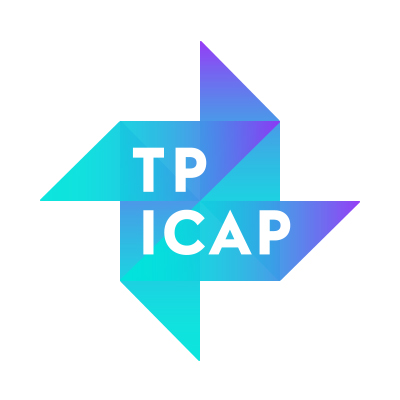
ICAP Information, part of TP ICAP, the world’s largest inter-dealer broker, has launched a data package covering African OTC markets.
The new product will make data captured by ICAP’s long-established South African desk available commercially to the general marketplace for the first time, including many areas for which there has previously been no data available. The information covers multiple asset classes including FX, fixed income and interest rates across a wide range of countries and regions throughout the continent, namely Botswana, Ghana, Kenya, Mauritius, Nigeria, South Africa, Tanzania, Uganda, and Zambia.
The release is the latest output from the closer relationship between TP ICAP’s Data & Analytics and broking divisions, as the company looks to increase the collaboration between its business units and diversify its product and client base.
The information in the new offering will be beneficial to customers with exposure to the continent across a number of day-to-day activities, from the front-office, covering price discovery and accurate securities pricing, through to the middle and back offices including risk management, valuation and independent price verification.
Wayne Jackson, Director – ICAP South Africa, comments: “Africa is rapidly emerging as a hotspot for global investment, with foreign investment expected to continue to rise significantly. However, there is currently a real lack of generally-available data and information on OTC activity across the continent, and what is available tends to be patchy and unreliable at best.
“Driving transparency across Africa’s capital markets will be crucial to unlocking its economic potential in the years to come. We have a strong track record on the ground in the region, making us best placed to provide this data as an independent and trustworthy source. In many cases we are the only ones holding any data at all. This is a very exciting step for us, and an important illustration of the broader role TP ICAP can play in the global financial sector.”
Eric Sinclair, CEO of TP ICAP Data & Analytics comments: “The initial release has been curated to cover markets and regions where we know there is significant demand. We are confident that as interest spreads, we will be best placed to provide further data sets and the package offered will evolve along with this. Our sub-Saharan African data in particular has long been relied upon by some of the world’s largest and most reputable financial institutions – we are confident that the data in this package will be equally valuable to anyone with exposure to these regions and markets.”
Related News
- 03:00 am
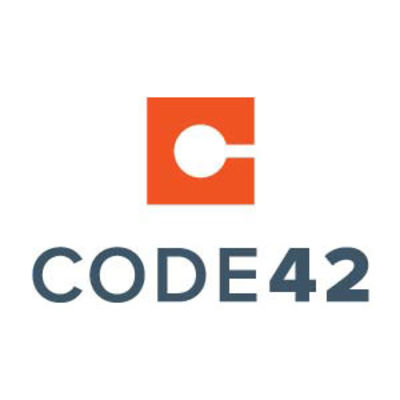
Code42, the leader in data loss protection, has released its annual 2019 Global Data Exposure Report. The study found that insider threats – caused by current and departing employees – expose companies to breaches and put corporate data at risk. The research also questions whether the right data security solutions are being funded and deployed to stop insider threats and asserts that legacy data loss prevention solutions fall short in getting the job done.
Today, 79% of information security leaders believe that employees are an effective frontline of defense against data breaches. However, this year’s report disputes that notion.
Wake-Up Call: Insider Threats are your Biggest Danger to Data Security
Recognizing that employees are the power behind any organization, companies are increasingly implementing strategies for collaboration to make information sharing easier than ever. Unfortunately, some organizations have not put in appropriate detection and response data security controls, and instead simply trust employees to keep data safe. However, this trust is frequently abused. The study showed that employees take more risks with data than employers think, which leaves organizations open to insider threat. Key findings said:
Rather than sticking to company-provided file sharing and collaboration tools, one in three (31%) business decision-makers also use social media platforms, such as Twitter, Facebook or LinkedIn, 37% use WhatsApp and 43% use personal email to send files and collaborate with their colleagues.
Over three-quarters (78%) of CSOs and 65% of CEOs admit to clicking on a link they should not have, showing that no level of employee is immune to lapses in judgement.
These types of risk-based actions are why half of the data breaches that companies admitted to experiencing in the previous 18 months have been caused by employees, according to both information security leaders and business decision-makers (50% and 53% respectively).
“Organizations are overlooking the most harmful data security threat: their own employees. While security leaders likely are aware of the problem, they may not grasp the sheer magnitude of it. And most have fallen behind in effectively detecting and responding to insider threats,” said Joe Payne, Code42 president and CEO. “The brutal truth is employees take data. Companies that don’t have or underinvest in an insider threat program or rely on legacy data loss prevention solutions, are feeling the pain and winding up in headlines. Security leaders must find a better way to protect sensitive company data and address threats coming from within their own walls.”
Departing Employees Pose Major Security Risks
While most employees try to leave their jobs on a positive note, chances are they are taking more than just memories when they leave; they’re also pocketing proprietary data – negatively impacting their former colleagues. Equally as concerning as departing employees are incoming employees who bring data from their prior organizations with them. The study found:
Nearly two-thirds (63%) of survey respondents admit to bringing data from past employers to their new jobs.
What’s more, most employees today feel entitled to personal ownership over their work. In fact, a large majority of information security leaders (72%) agree: “It’s not just corporate data, it’s my work – and my ideas.”
Traditional Prevention Solutions Are Not Working
Information security leaders know their data is at risk. While traditional prevention solutions are widespread, these solutions aren’t proving effective in protecting valuable data, such as customer lists and source code, from insider threats. The Global Data Exposure Report showed:
Over two-thirds (69%) of organizations say they were breached due to an insider threat and confirm they had a prevention solution in place at the time of the breach.
Over three-quarters (78%) of information security leaders – including those with traditional data loss prevention (DLP) – believe that prevention strategies and solutions are not enough to stop insider threat.
In line with these findings, a commissioned study conducted by Forrester Consulting in 2019 on behalf of Code42 found that four in five (81%) survey respondents need a better way to protect sensitive data without slowing down innovation. Furthermore, nearly half (48%) of them also deemed it a critical priority in the next year to better protect sensitive company and customer data.
“We’re seeing companies empower their employees without the proper security programs in place, leaving companies in a heightened state of risk,” said Jadee Hanson, CISO and vice president of information systems of Code42. “In addition to enforcing awareness trainings, implementing data loss protection technologies and adding data protection measures to on- and off-boarding processes, organizations should not delay in launching transparent, cross-functional insider threat programs. Insider threats are real. Failing to act will only result in increasingly catastrophic data loss and breaches.”
Related News
- 07:00 am
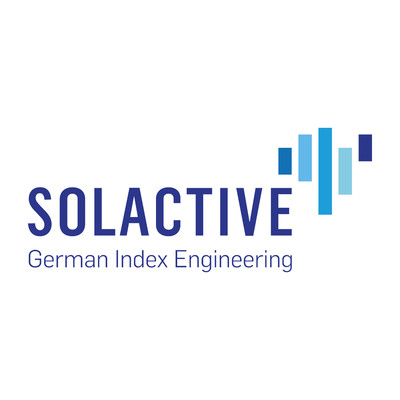
Solactive is pleased to announce the launch of the Solactive ARC ESG Big Data Europe Index, which was developed with ARC Responsible Investment earlier this year, and is designed to track the performance of European stocks with a high consensus Environmental, Governance, and Social (ESG) Score, based on data provided by OWL Analytics and Investment Research. Simultaneously, the Index includes high dividend stocks and displays a low-risk profile. HSBC has licensed the Index to manufacturing products for its markets clients.
“This project exemplifies Solactive’s flexibility in tailoring indices to meet clients’ needs,” explains Timo Pfeiffer, Head of Research at Solactive. He continues: “We are incorporating cutting-edge ESG metrics derived from a big data approach, thereby excluding non-compliant activities and sectors as well as polluting companies, which allows our clients to access the latest innovations in ESG.”
As a response to investors’ growing demand for incorporating ESG factors in their investment strategies, Solactive established the Solactive ESG Big Data Europe Index. The index strategy seeks to achieve lower volatility and lower drawdowns compared to its benchmark, the Solactive GBS Developed Markets Large & Mid Cap Index.
Xavier Ducros, Founding Partner at ARC Responsible Investment, commented: “The index allows investors to benefit from an innovative and smart ESG approach while reducing the overall risk of the portfolio, achieved thanks to various risk factors.”
OWL Analytics is an alternative data company that aggregates hundreds of sources of ESG data and research to create company scores and rankings based on a stronger foundation of data, optimized to increase objectivity. After the fundamental selection, Solactive applies financial screenings such as liquidity, dividend-yield, and risk filters to build the final index composition.
Benjamin Webster, CEO at OWL Analytics, said: “We are delighted to be part of this new generation ESG index by integrating our proprietary technology ESG strategy that reduces subjectivity in ESG scoring providing the best-of-the-best ESG consensus.”
Patrick Kondarjian, Head of Sales at HSBC, adds: “The Solactive ARC ESG Big Data Europe Index will provide HSBC with an innovative alternative product that we will be able to offer our clients who have a preference for consensus-based ESG scoring.”
The Solactive ARC ESG Big Data Europe Index is calculated as Gross Total Return, Net Total Return, and Price Return. The index is published in EUR, and its composition is adjusted quarterly.
Related News
- 08:00 am

Previse, the fintech that uses AI to get suppliers paid instantly, today announced that it was selected to join Start Path, Mastercard’s award-winning startup engagement programme for later-stage scaling startups. Through the six-month programme, a dedicated Mastercard Sponsor provides a gateway to operational support, technology expertise, commercial engagement with Mastercard’s global ecosystem and opportunity to secure strategic investment.
The programme provides banks and merchants access to a global portfolio of elite fintechs, to enable them to accelerate commercial products and solutions through collaboration. Previse’s spot in the programme comes after a competitive selection process, with approximately 1,500 companies evaluated annually for entry into the program, and only around 40 accepted.
The programme is open to fintechs who are rethinking banking, payments and commerce and have raised a significant seed or Series A round of investment.
Previse’s acceptance onto the programme is part of the company’s rapid growth since inception and will increase access to its offering for a wide portfolio of banks and merchants.
Previse uses smart technology to analyse invoice data from large corporations to tackle the issue of slow invoice payments to SME suppliers, enabling payments to be made as soon as an invoice is received rather than waiting for lengthy payment terms.
Paul Christensen, CEO at Previse, said: “Being selected as part of the Start Path program is a testament to the strength of our offering, which answers the problem of slow invoice payments that hurt SMEs worldwide. Our place in the network will support our continued growth and enable us to develop our offering further in our mission to end slow B2B payments for good. We are proud to be part of the network and look forward to the opportunities it will enable us to pursue as we expand.”
Related News
- 01:00 am
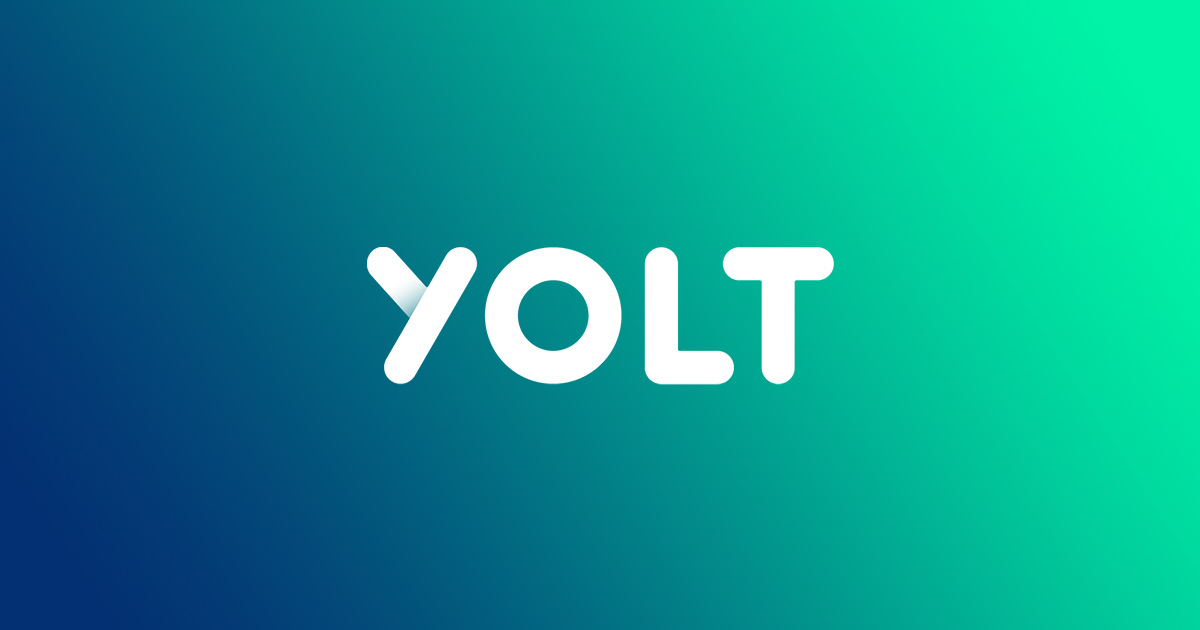
Yolt users in the UK, France and Italy can apply for a Raisin account accessing a wide range of deposit products, select from competitive Raisin offers and see their deposits, directly within the app. The integration builds on Yolt’s mission to enable users to make informed financial decisions. Within the Yolt marketplace, users can currently switch their household bills, shop for insurance, make investments, combine their pensions and now, grow their savings via Raisin.
Yolt’s Chief Marketing Officer Cristel Lee Leed said: “Our latest partnership with Raisin will benefit our Yolt community of users, giving them access to savings products with competitive interest rates – empowering them to do more with their finances.”
The integration builds on Raisin’s strength in B2B partnerships, making its products and services available through a wider range of like-minded financial institutions, including fintechs and banks. Embedding Raisin‘s offers into their own platforms allows partners like Yolt to expand the spectrum of their savings products — choosing a selection of Raisin’s more than 500 deposit offers from 82 partner banks across Europe. Building on an open banking vision, Raisin deploys a range of technical solutions, from fully integrated “white label” products using Raisin’s proprietary API to a variety of lead-outs, connecting a bank or money app’s customers smoothly to the Raisin platform.
Raisin strongly aligns with Yolt‘s vision of helping people optimize their financial management, with both fintechs dedicated to removing complex barriers consumers may face when it comes to better saving.
Dr. Tamaz Georgadze, Raisin CEO and co-founder explained: “In Europe’s current negative interest environment, Raisin’s B2B solution gives banks a means of moving excess liquidity without losing their customers. Meanwhile partnerships with innovative platforms like Yolt, which allow financial services providers to extend their range of offers, expand the reach of our partner banks as well as choice for savers yet further.”
Related News
- 09:00 am
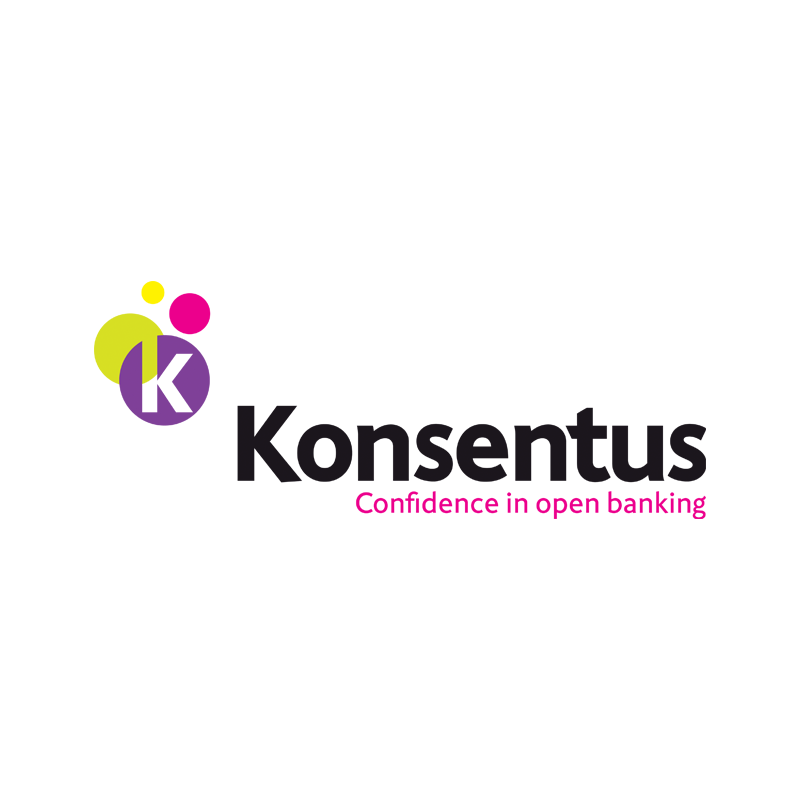
RegTech company Konsentus led the field at the Emerging Payments Awards by being recognised in three categories for their first-class PSD2 Open Banking solution.
Industry experts from the world of payments were joined by rising FinTech stars to celebrate achievements from the past year. Konsentus’ Third Party Provider (TTP) Regulatory & Checking solution was confirmed by the acclaimed panel of Judges, chaired by John Chaplin, as being a game-changer for PSD2 Open Banking implementation, winning in:
• Best Technical Service Organisation supporting Emerging Payments
• Best Back Office Innovation
• Best Banking or Open Banking Initiative
As a SaaS-based platform delivered via an API, Konsentus offers a plug-and-play solution that will integrate into Financial Institutions’ existing platforms, enabling them to create a seamless user experience mitigating risk and reducing fraud.
Mike Woods, CEO Konsentus commented: “This accolade confirms Konsentus’ place as a leader in the Open Banking market. I am honoured that we were selected from such an esteemed shortlist in all three categories and were able to share in the success with our partners and clients who joined us on the night”.
Konsentus has a go to market strategy of working both directly with Banks and Financial Institutions along with key industry partners such as Mastercard.
Jim Wadsworth, SVP Open Banking, Mastercard, said “We identified Konsentus as a leading player in the Open Banking ecosystem with significant potential which is why we selected them to join our StartPath programme as well as utilising their SaaS solution as part of our European Open Banking offering. Their identity and checking service is easy to use, cost effective and simple to integrate with.”
John Chaplin, Chair of Judges of the Emerging Payments Awards commented: “The Emerging Payments Award winners represent the best of the best in our industry. All the finalists submitted great entries but the winners, in the view of the judges, are truly outstanding and deserve many congratulations”.
Related News

Stéphanie El Rhomri
VP Testing Services at FIME
Since the launch of contactless just over a decade ago, innovation in payment cards has struggled to keep pace. see more









